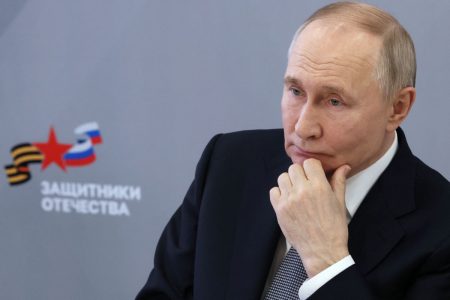Greece is certainly not the centre of the earth, as certain conceited super-patriots imagine. However, its geographic position, that it is at the cusp of West and East, makes it noteworthy and for centuries sought after.
Especially in transitional periods, such as today, the interest of the great powers multiplies. A simple glimpse at history will confirm that.
From the era of the well-known “Eastern Question”, when the end of the Ottoman Empire was being arranged, until the aftermath of WWII, when the victorious powers – Americans, Russians, and British – determined the spheres of influence, and later in the Cold War, many powers exerted influence over Greece.
Now that the world is changing, and great geopolitical and geostrategic interests are restructuring, extremely powerful international forces are exercising their power here, simply because we are in the middle of great routes of oil, energy, and transportation. It is also because the broader region of the Southeastern Mediterranean contains still unexploited natural resources that it remains an unstable and a high danger zone.
In this period, Greece is governed by the Europeans, treated by the Americans as an historically stable ally, and claimed by the Russians due to their influence in the Balkan, Slavic zone, and because it holds a place of primacy in the Eastern Orthodox world.
This almost open and well-known Russian claim is the root of the last crisis between Athens and Moscow, with threats of a mutual expulsion of diplomats.
At the same time, our country faces the aggressiveness and prejudice of Turkey, which is proclaiming primacy in the broader region, and the role of a large regional power in a changing world.
All these pressures on Greece are magnified in the current, distinctive conditions, because our country happens to be ailing, vulnerable, and dependent, because of its over-indebtedness and unfavourable economic position.
If Greece were economically strong, and because of its participation of supra-national groupings, it would have had a greater degree of freedom to exercise a multi-pronged foreign policy, as had been done in the past by the late leaders Constantine Karamanlis and Andreas Papandreou.
Now, unfortunately, as the Macedonian naming issue proved, and the imprisonment for months of two Greek army officers, Greece is in danger of being transformed into a cheap shooting range, in which foreign troops exercise while cursing, as a song by Alkis Alkaios first sung by Manolis Mitsias said.
For these reasons, there is an urgent need to quickly revive the economy and release it from ideological fixations and futile, divisive limitations.
Now is the time for leaps of progress. Policies with small steps have no place in our era. Without a healthy and rapidly developing economy, one cannot take even a single step in foreign policy.
In addition, one must create a clear and clean path of alliances, without which no state can grab opportunities in this new, multi-polar world.
That means that the Greek political system must cooperate and discuss its future in an organised manner.
Otherwise, the fate of the cheap firing range awaits us.




